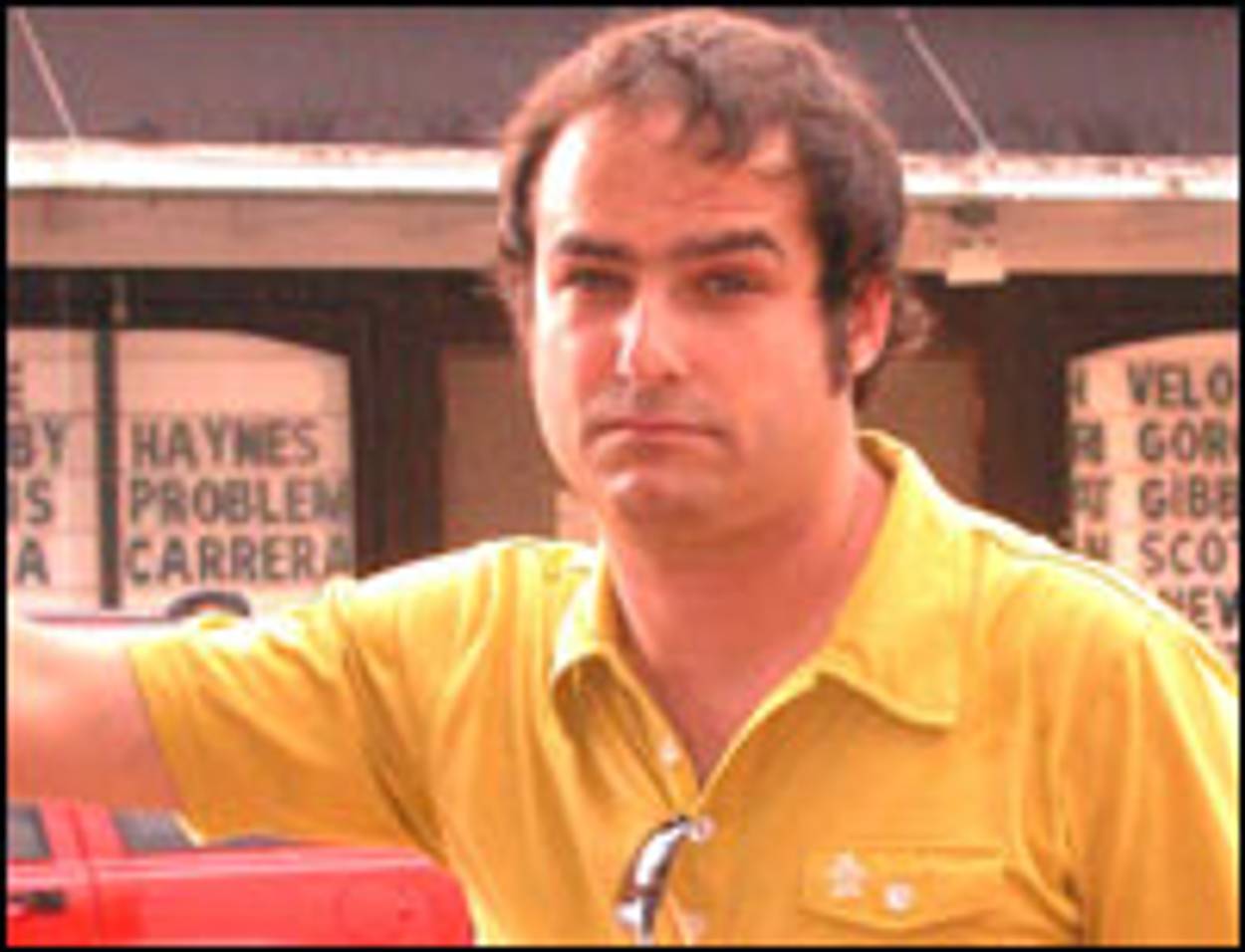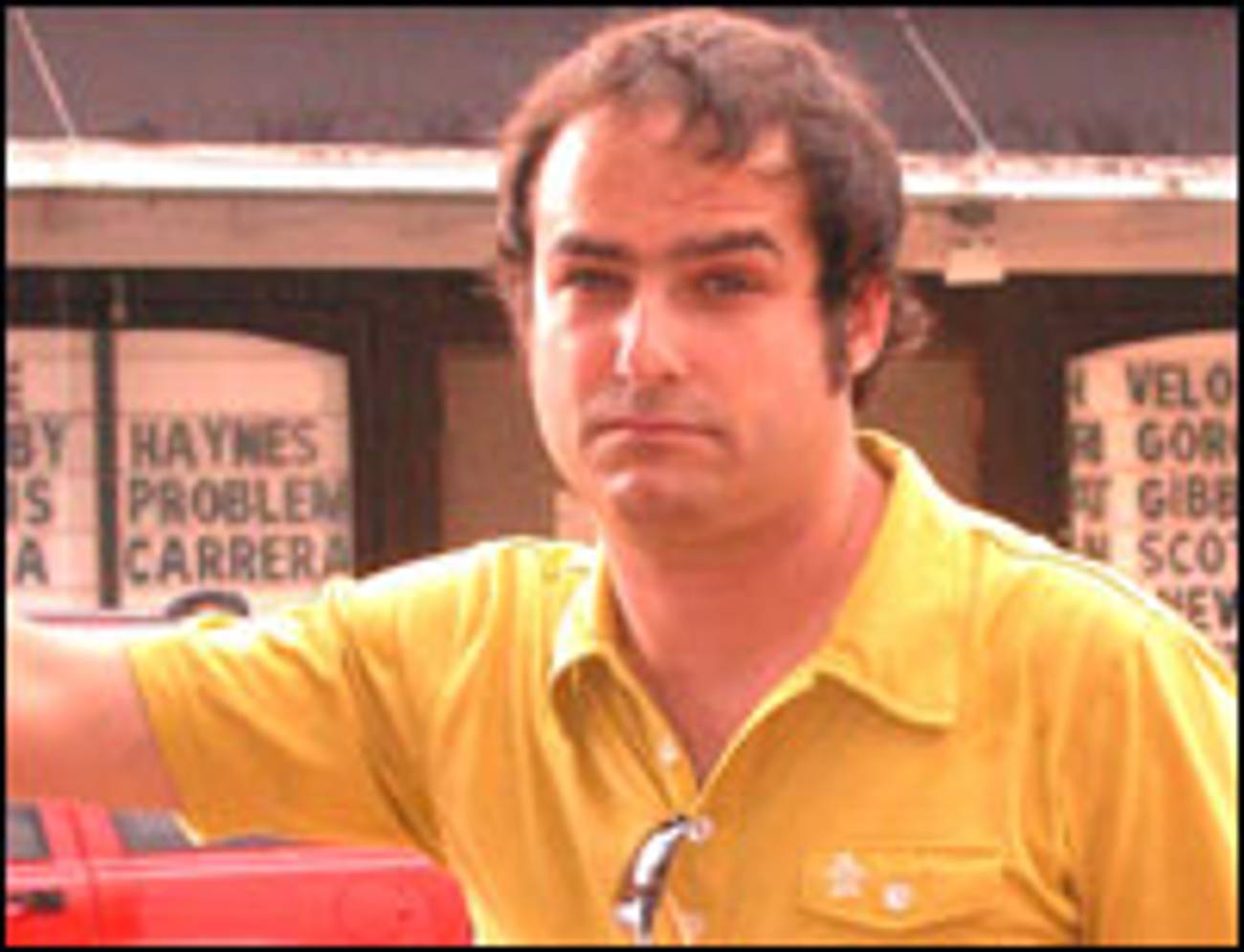Give ‘Em Hecht
A young Chicago newspaperman thought he was perfect for the part of his hero




One afternoon in the spring of 1997, in a final, desperate spasm of my sad attempt to make a second career for myself in the world of Chicago amateur theatrics, I auditioned to play the role of Ben Hecht in 1001 Afternoons In Chicago, an Off-Loop adaptation of Hecht’s great collection of Chicago Daily News columns from the 1920s. The real Ben Hecht wouldn’t have been caught dead trying out for—much less attending—such a play, but this didn’t occur to me at the time.
I didn’t prepare for the audition because I didn’t feel that I needed to. The rest of the auditionees would be mere actors, all sizzle and no steak. I, in my opinion, had the steak, raw and bloody. I was an actual reporter in Chicago, a working newspaperman. Who better to understand the dark mysteries of Hecht’s Chicago than an imitator who lived in a facsimile of it 70 years later? Of course, I didn’t have one sixteenth of his career or life experience. Then again, no contemporary writer does.
In an era when the only acceptable literary pose involves knee-jerk liberal politics and a studied air of false humility, it’s impossible to imagine that a contemporary American literary figure could have a career as diverse and interesting as Ben Hecht’s. He wrote novels, mostly terrible, and screenplays, mostly great; Pauline Kael once referred to Hecht, in print, as “America’s greatest screenwriter.” He was a newspaperman in an age when that profession had literary possibilities, and a short-story writer when that profession had commercial ones. He also found time to do architectural criticism and to create an artistic alter ego, Fantazius Mallare, whose nihilistic individualism made Ayn Rand look like a Bolshevik in comparison. His career started around World War I and continued into the early 60s. In its later stages, he found himself writing, in 1943, a book-length plea to the American public on behalf of the millions of Jews being murdered in the Holocaust. This made him a hero among his people. Ten years later, he wrote Perfidy, a book that widely revealed, for the first time, that Jewish Labor Zionists had collaborated with the Nazis during World War II. This made him one of his people’s most hissed-at villains. Then, as a final act, he hosted a popular network television talk show.
Those best pieces are collected in 1001 Afternoons. It remains one of the grail books of any Chicago reporter with literary aspirations, along with The Man With The Golden Arm, Working by Studs Terkel, any collection of pre-1983 Mike Royko columns, and, for the left-leaning, The Octopus by Frank Norris. I admire Hecht’s book because I see it as the inevitable literary byproduct of a culture that consisted of, as Hecht described it later in his life, “assorted drunkards, poets, burglars, philosophers and boastful ragamuffins. Supermen with soiled collars and holes in our pants, stony broke and sneering at our betters in limousines and unmortgaged houses.” I aspired to this particular brand of bohemian greatness in the 1990s. It was the Chicago in which I imagined I lived.
The book still holds a kind of magical sway over me, because it showed a kind of American life that seems to have disappeared, a time when public eccentricity didn’t merely feed the appetite of cable TV and when cities could be slightly unsavory without feeling overwhelmingly dangerous. There’s a story in it called “The Man Hunt“, which opens with a paragraph of such clarity and simplicity that it should be taught in every creative-writing program. Not only does it codify the tough-guy noir-speak that would soon come into American vogue, but it also sets up a thrilling, complex story in short, plain sentences:
They were hunting him. Squads of coppers with rifles, detectives, stool pigeons were hunting him. And the people who had read the story and looked at his picture, they, too, were hunting him.
Perhaps the most extraordinary thing about “The Man Hunt” is that it appeared in a daily newspaper, which we long ago ceased to think of as a house of literary worth. But the Chicago newspapers of the 1920s represented one of those rare intersections of high and low culture, so rare that people (mostly writers, mostly Chicagoans) are still longing for its return. Only newspaper work could have supplied Hecht’s pallette with such limitless color. Abandoned wives, henpecked husbands, aging showgirls, tavern owners, aldermen, suicidal millionaires: Archetypes sprung from his pen.
At my audition, I presented my interpretation of Hecht. He hadn’t been a passive observer of the grand carnival that he made his life. He’d been a center-ring performer. This was no quiet, modest literary gentleman. He was kind of a self-promoting jerk, in some ways. I understood him very well.
Perhaps I proved too intense for the theatrical geniuses who saw fit to cast someone else in the role. In retrospect, there were probably 1,001 actors in Chicago who could have played the role better than me. The guy the producers chose wasn’t one of them. He read Hecht’s strange and soaring words as though he were narrating a Wonder Years script. He wore a crisp little mustache that made him look like a dandy. The guy didn’t look like he’d ever played poker—much less played poker drunk—in his life. The show received respectable reviews, no audience, and vanished.
I still tell myself that I could have saved the play. In reality, it was just a mediocre script, cheaply produced, and my performance wouldn’t have changed anything. But I largely credit Ben Hecht for helping me recognize why that was the case. You can go cheap and pulpy, he taught me. But you’d better have style.